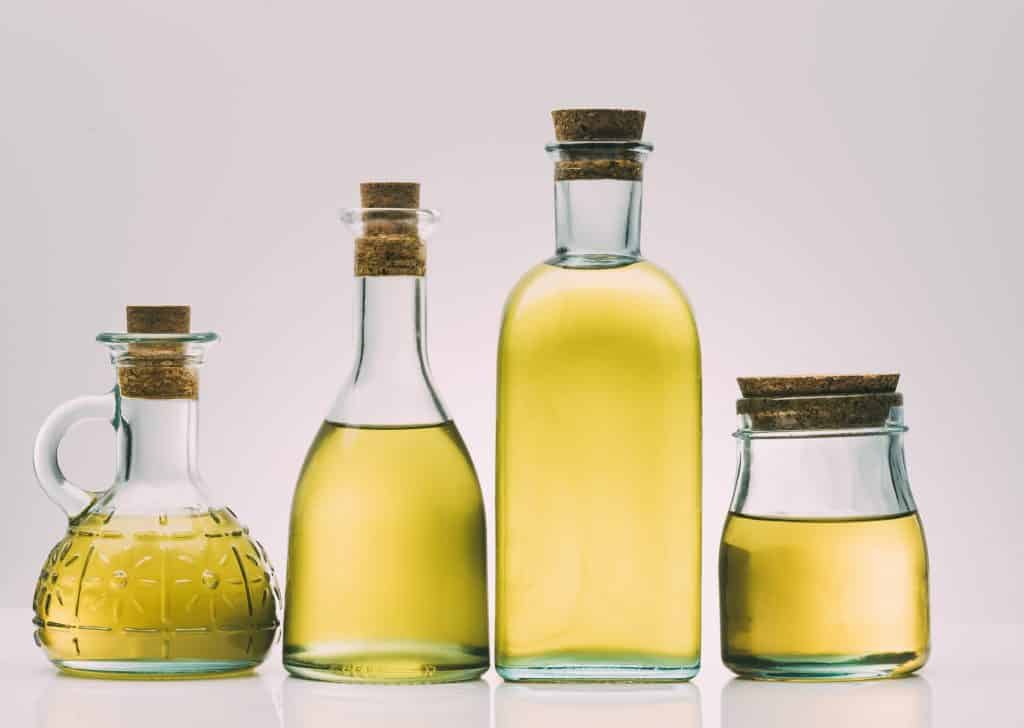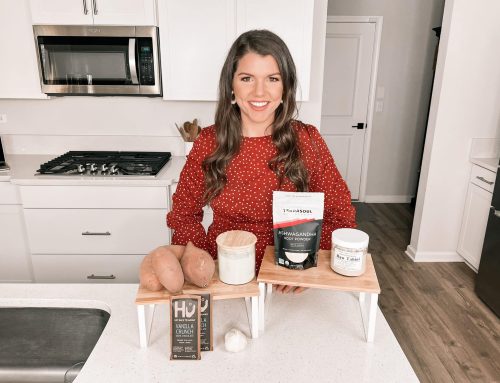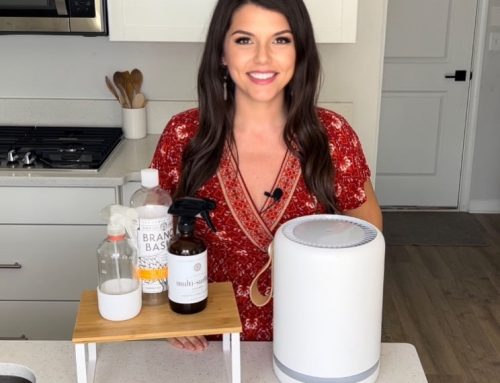
There are so many oils on the market and a lot of conflicting information. It's hard to know which one is best.
Not all oils are created equal. Some are worse than others.
If you've been following along here for sometime, you might already know that I try to avoid all oils as much as possible. Almost all the recipes here are 0il-free and I get asked why a lot!
What Makes Oil Bad For Our Health
Unfortunately, all oils impair arterial function. What this means is it restricts blood flow in our arteries.
Refined oils and animal fats are the worst offenders of this. Eating these high fat foods year after year is what leads to things like heart disease (America's #1 killer) and stroke.
Most cooking oils go through a lot of processing! Remember, with all foods, the more it's been processed the worse it is for our health.
Oil is very high in fat and is calorically dense. I don't count calories myself because calories don't equal nourishment but, when it comes to oil, it's a lot of EMPTY calories that could be used on better food.
So, if weight-loss is one of your goals, cutting the oil out can help tremendously! Think – no fried foods or heavily processed foods.
Now, don't get it twisted, there are some high fat foods like avocados and nuts that do NOT have this effect on arteries and are good for weight-loss and our overall health.
Avoid These Highly Processed Oils
I recommend avoiding the highly processed oils as much as you can, which include canola oil, corn oil, cottonseed oil, palm oil, vegetable oil and soybean oil.
These oils have even shown to have negative effects in healthy, young individuals.
Let's talk about canola oil for a second. For years it's been touted as a healthy oil and it's in SO many processed food items.
It's made from rapseed and put through a wash of a hexane solvent, followed by a wash with sodium hydroxide and then BLEACHED to lighten the color. And finally, a stem injection to help remove the bitter smell.
See it all in this video on how Canola oil is made. In it, they say it's one of the healthiest oils… I don't think so!
Canola oil is also very high in Omega-6 fatty acids, which increase inflammation and oxidative stress.
The other oils I mentioned are also put through similar processes, so again, this is why I recommend avoiding them as much as possible!
Healthy Oils
If you're not ready to go completely oil-free here's some better options.
Extra Virgin Olive Oil is the healthiest oil that you can use. Studies have shown that they still contain antioxidants from the olive and do not affect the arteries as much as other oils.
There are a few things you can do to ensure you're getting a good quality Extra Virgin Olive Oil.
- Shop at a specialty olive oil shop or market
- Look for a third-party certification seal. This could be from the California Olive Oil Council or COOC Certified Extra Virgin seal, or the European Union's Protected Designation of Origin (PDO).
- Check for a ‘harvest date' or ‘pressed on' date. Usually, the better oils will have this.
Also remember, just because it's expensive doesn't necessarily mean it's a good one.
Extra Virgin Olive Oil is good to use in things like salad dressings or dips. I don't recommend cooking with it.
For cooking, I recommend Avocado Oil as it can handle high heat temperatures. It's not as processed as the other oils I mentioned above either.
Now, don't think you'll get the same benefits of an avocado from avocado oil, because the avocado is a lot healthier. But, if you're really needing an oil to cook with, I recommend this one.
Making oil healthier to eat
There are two things that can help our arteries not get as restricted from blood flow when eating oil or foods cooked in oil.
1. Eat fruits and vegetables with the oil
Just adding fruits and vegetables to a fatty meal may partially restore arterial function and blood flow. We hear so much about the Mediterranean Diet being healthy, but that's mostly because of the large quantity of vegetables and fruit eaten on that diet.
2. Add vinegar to the meal
It's good to add vinegar to a fatty meal as studies have shown vinegar helps blunt the effects of oil on our arteries.
A lot of times, oil and vinegar are used as salad dressing or with bread as an appetizer. So, if you're going to have the oil, make sure to include the vinegar too! Balsamic vinegar has shown to be one of the best for this.
How to Eat Oil-Free
Oil is in so many things it's hard to avoid, especially when eating out, but we can avoid it when cooking at home and making sure to read ingredient labels on foods we buy.
For sautéing vegetables, I use either water or vegetable broth instead of oil. I just add a splash to begin. While I'm cooking, I keep my glass measuring cup with the water or broth by my stove and keep pouring in splashes if I see the food start to stick. I do this all the time on my IG stories so make sure you're watching!
Baking Oil-Free
It can be a little tricky swapping oil from baked goods. Depending on the recipe and the flavor, one of these oil-free substitutes might be better than another. Things I use instead of oil are:
- nut butters
- Coconut milk (canned)
- dairy-free yogurt
- banana
- unsweetened apple sauce
Here's some of my favorite oil-free recipes to bake:
I'll be sharing more on oils soon. I got a lot of questions about coconut oil so that's coming too! In the meantime, I hope this helps you reduce some of the oil in your diet!
Please leave a comment below with any questions or healthier oil, oil-free tips you might have!




